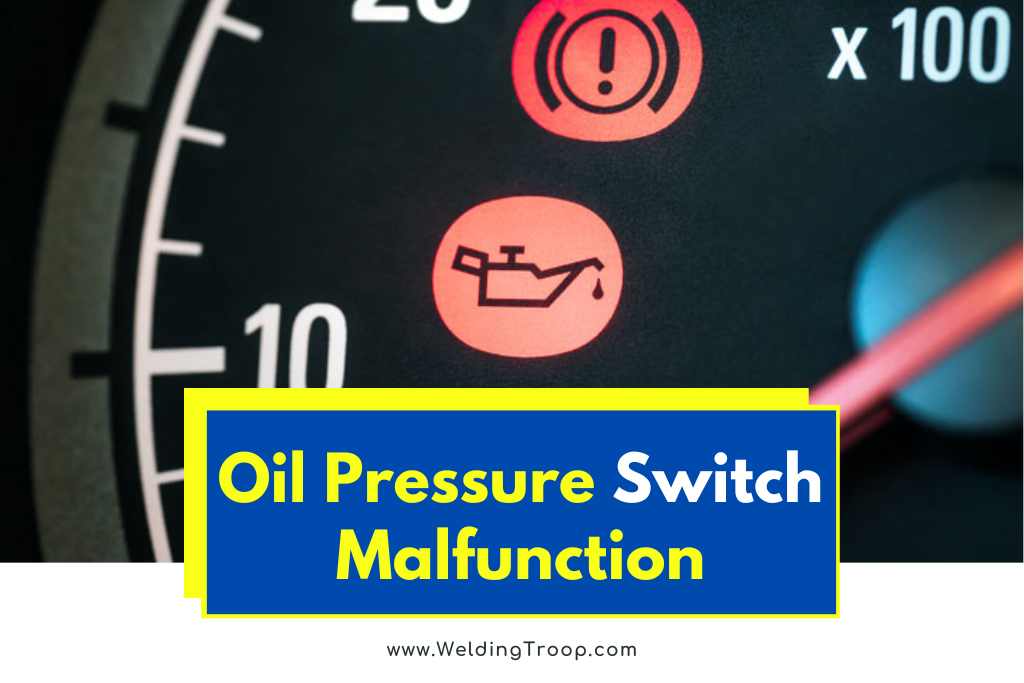When it comes to maintaining the health and longevity of your engine, proper oil pressure is crucial. The oil pressure sensor plays a vital role in monitoring the internal pressure of your engine and alerting you to any potential issues.
If your oil pressure sensor is faulty or malfunctioning, it can lead to a range of problems that can have serious consequences for your vehicle.
In this comprehensive guide, we’ll explore the symptoms of a bad oil pressure sensor and discuss the importance of addressing these issues promptly.
Understanding the Role of the Oil Pressure Sensor
Before we delve into the symptoms of a failing oil pressure sensor, it’s important to understand its primary function. The oil pressure sensor is responsible for monitoring the level of oil pressure in your engine.
It works by sending signals to the oil pressure gauge on your instrument cluster, which allows you to keep track of the oil pressure and take appropriate action if any abnormalities are detected.
When the oil pressure sensor malfunctions, it can lead to inaccurate readings and potentially severe consequences if not addressed in a timely manner.
1. The Illumination of the Oil Pressure Warning Light
One of the most noticeable symptoms of a bad oil pressure sensor is the illumination of the oil pressure warning light on your dashboard.
This warning light serves as an important indicator of any issues with your oil pressure. If the light comes on and stays on, it is crucial not to ignore it. While a faulty sensor can sometimes be the cause, it’s essential to rule out other potential problems such as low oil levels or a malfunctioning oil pump.
Checking your oil level and listening for any unusual noises from the engine can provide valuable insights into the underlying issue.
2. Inconsistent Readings on the Oil Pressure Gauge
Another telltale sign of a failing oil pressure sensor is inconsistent readings on the oil pressure gauge. If the gauge constantly displays extremely high or zero pressure, it may indicate a problem with the sensor.
In older vehicles, a mechanical gauge is typically used, whereas modern cars rely on electronic signals. Regardless of the type of gauge, abnormal readings should not be ignored.
It is important to verify the accuracy of the readings by manually checking the oil level and ensuring there are no other mechanical issues that could be causing the problem.
3. Oil Leaks and Other Indications of Sensor Failure
A malfunctioning oil pressure sensor can also manifest in the form of oil leaks. If you notice oil leaking from your engine, it could be a sign of a faulty sensor or other related issues.
Oil leaks can have various causes, including damaged sensors or compromised gaskets. It is essential to have a professional inspection to accurately diagnose the source of the leak and address it promptly to prevent further damage to your engine.
Why Prompt Diagnosis and Repair are Crucial
Recognizing the symptoms of a bad oil pressure sensor is only the first step. It is equally important to understand the significance of addressing these issues promptly.
Neglecting a faulty sensor can lead to severe consequences, such as low oil levels, which can cause significant damage to your engine.
Additionally, relying on inaccurate readings from the sensor can result in delayed detection of critical issues, leading to costly repairs or even engine failure.
Read also >> Oil Pressure Sensor Malfunction (Symptoms + Solutions)
Read also >> How Long Does Oil Last In a Car Not Driven? (Here Is Why)
Diagnosing and Fixing the Problem
If you suspect a failing oil pressure sensor, it is crucial to perform a thorough diagnosis before proceeding with any repairs.
A professional mechanic can utilize specialized equipment, such as a scan tool, digital multimeter, and mechanical oil pressure gauge, to accurately assess the condition of the sensor.
Additionally, they can determine if there are any underlying issues contributing to the sensor’s malfunction.
In some cases, the issue may be as simple as a loose or corroded connection, which can be easily resolved. However, if the sensor is indeed faulty, it should be replaced promptly to ensure accurate oil pressure readings and prevent potential damage to your engine.
While some vehicles have easily accessible sensors that can be replaced without significant disassembly, others may require more extensive work that is best left to a professional.
Regular Maintenance and Care: Key to Preventing Sensor Failure
While it’s impossible to completely eliminate the risk of a failing oil pressure sensor, regular maintenance and care can go a long way in preventing such issues.
Routine oil changes, using the recommended oil for your vehicle, and adhering to the manufacturer’s maintenance schedule can help maintain optimal oil pressure and prolong the life of your sensor.
Additionally, being vigilant about any changes in your vehicle’s performance or warning lights can help you catch potential problems early on and address them before they escalate.
Consulting a Professional for Expert Advice
If you’re experiencing any of the symptoms mentioned above or have concerns about your oil pressure sensor, it is always best to consult a professional mechanic.
They can provide expert advice, perform accurate diagnostics, and offer appropriate solutions to ensure the optimal functioning of your oil pressure sensor and overall engine health.
Conclusion
The oil pressure sensor plays a crucial role in maintaining a properly functioning engine. Understanding the symptoms of a failing oil pressure sensor is essential for prompt diagnosis and repair, preventing potential damage to your engine and costly repairs.
By staying vigilant, performing regular maintenance, and seeking professional help when needed, you can ensure the longevity and optimal performance of your vehicle’s oil pressure sensor.

